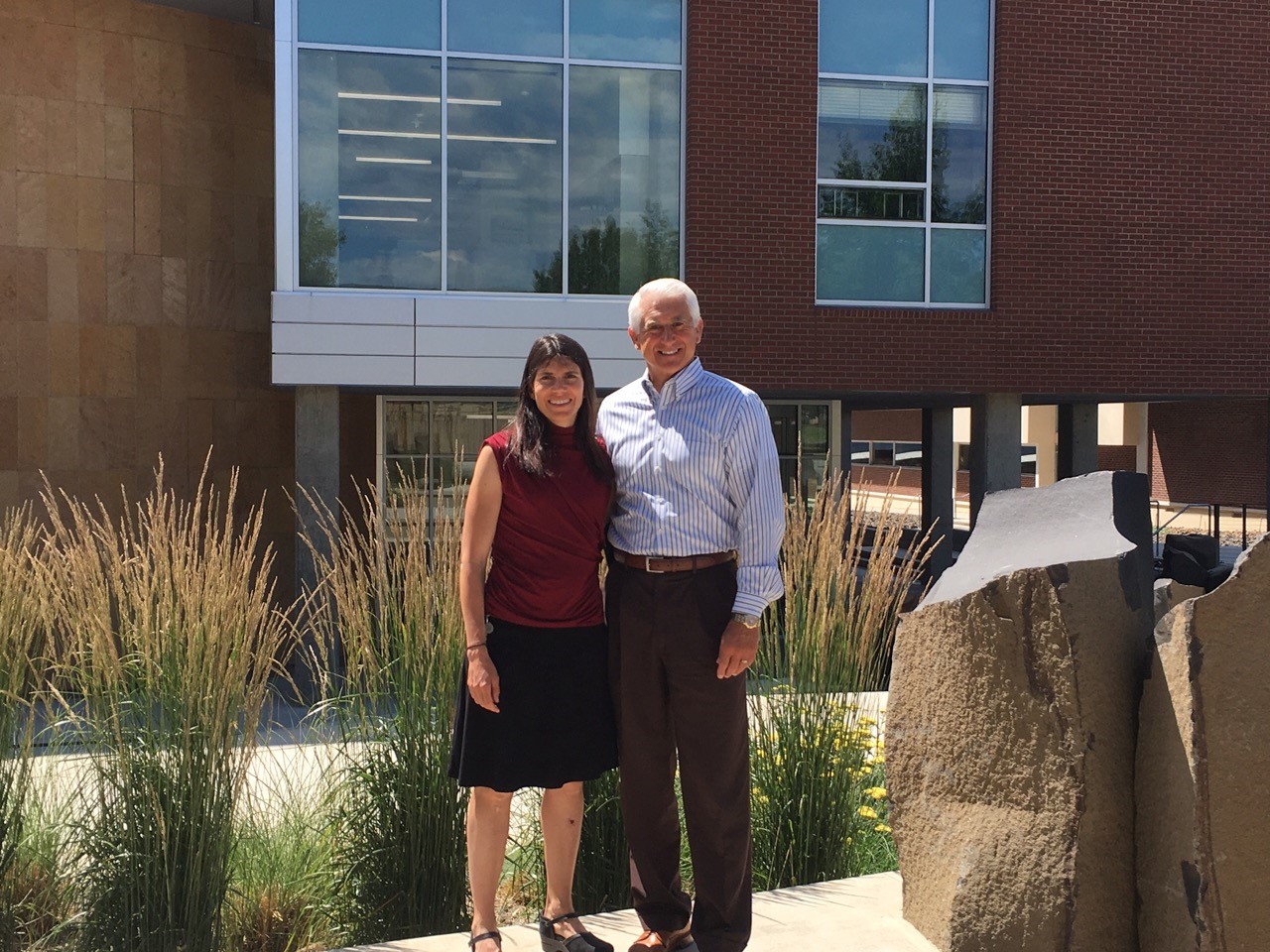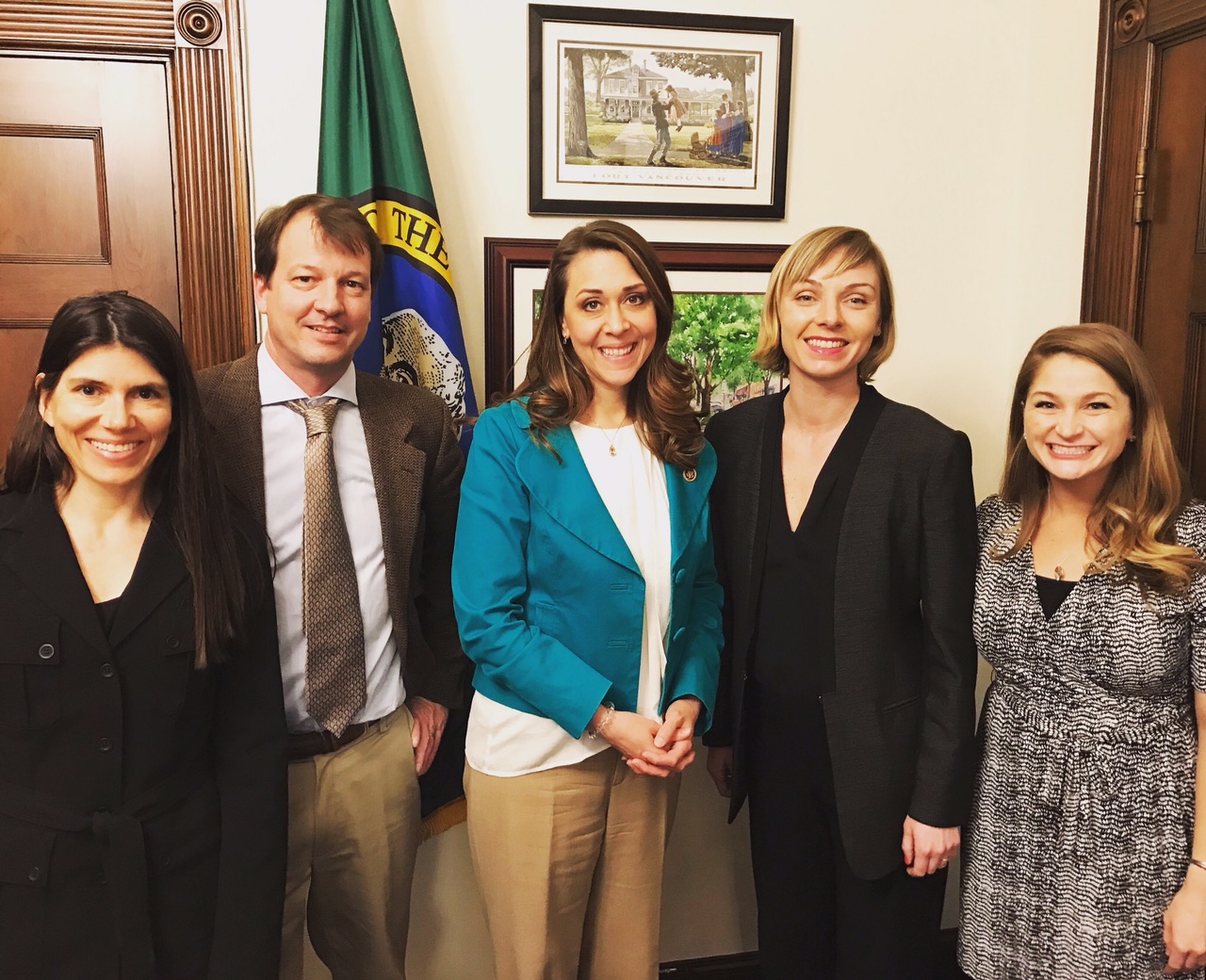August 9, 2017
District Days Series: My Experience Having my Congressman Visit my Laboratory
Posted by cbunge
This Bridge post is a part of AGU’s District Days Series. Throughout August, Members of Congress will be back in their home states and districts meeting with constituents. As a part of August recess, The Bridge will highlight voices of AGU members that have been engaged with their legislators both in DC and back at home. Check back with us next Wednesday to hear more stories of AGU members standing up for science! For more information on how to schedule your meeting with your legislator, check out AGU’s District Days website.
I’m a climate scientist. Since I started graduate school in 2001, I’ve aimed to keep myself informed about climate policy. Like many of my peers, I’ve been extremely frustrated by the politicization of climate science. I was thrilled when the Paris Climate Agreement entered into force on November 4 (viewing it as important step in the right direction), and dismayed on November 8 when the 2016 Presidential Election brought into question the US’s commitment to the Paris Agreement. I didn’t sleep election night, reading everything I could about what the US election would mean for the Paris Agreement. With the change in US leadership, like most scientists and many Americans, I am extremely concerned about policies being made that aren’t based on sound science, and that there is renewed energy around politicizing climate science. Climate change should not be a partisan issue. The 2016 election motivated me to become more engaged with science policy.
I am a constituent of Congressman Reichert, a Republican member of the US House of Representatives representing Washington State’s 8th Congressional District. In July, Congressman Reichert visited my laboratory for an hour and a half. We discussed the changes in climate that I observe in our district, I showed him my research facilities and how we conduct our research, and I asked that he use me as a resource for information related to climate change. My primary goal of the visit was to build a relationship with Congressman Reichert, intending to do what I can to ensure that policies that impact climate change are being based on sound science.
I’ve been working on building a relationship with Congressman Reichert’s office since the spring. In March, I visited DC to participate in Climate Science Day, during which 25 scientists from 15 different science organizations met with congressional staff on Capitol Hill to educate and build relationships that allow members of Congress to have access to the best possible climate science information. I was a member of ‘Team Washington’, which included two other climate scientists from Washington State, and Carissa Bunge, a Public Affairs Specialist for AGU. On Climate Science Day we met with congressional staff from Washington State’s two Democratic Senators, and four Republicans from the House of Representatives. These visits were 30 minutes long, and most were held with congressional staff, with the exception of a direct meeting with Congresswoman Herrera Beutler. All of the meetings were productive, but I left the experience feeling that it was only the first step.
Upon returning to Washington State, I continued to work to build a relationship with Congressman Reichert and his staff. One of his staff members began to hold monthly office hours in my town, which allowed me to conveniently meet with his staffer. I then worked with Congressman Reichert’s office to arrange the July 7 visit to my laboratory.
I purposefully kept the meeting with Congressman Reichert at my laboratory small to ensure that we stay focused on discussing climate change in our district. The meeting included Congressman Reichert and his staffer, myself, and my university’s assistant director of government relations.
The meeting exceeded my expectations. Congressman Reichert was engaged in the science, asked me a lot of questions, and made many connections to related issues in our district. One aspect of my regional research investigates the linkage between snow and glacier melt, wildfire and water resources, with fieldwork conducted on glaciers in the Cascade Mountains of Washington State. Congressman Reichert asked if it would be possible to visit one of the glaciers where we conduct this work, and I currently am in communication with his staff to arrange a visit into the field during 2018.
A secondary goal of my meeting with Congressman Reichert was to find out more about the Climate Solutions Caucus, a bipartisan group in the House of Representatives that explores policy options that address the impacts, causes and challenges of our changing climate. Congressman Reichert joined the caucus in February, which currently has 25 democrats and 25 republicans. I asked Congressman Reichert to reach out to Republican members of the House who would support the purpose of the Climate Solutions Caucus. Congressman Reichert suggested that I could return to DC to meet with the caucus, which could be a possibility for this fall. Additionally Congressman Reichert has signed on to the House Republican Climate Resolution, which supports the need to take action to address climate change.
 As a republican representative, Congressman Reichert is showing a willingness to lead on climate change issues. I will continue to work with his office, both to provide myself as a resource on science issues, and to encourage Congressman Reichert to support policies that will mitigate the impacts of climate change.
As a republican representative, Congressman Reichert is showing a willingness to lead on climate change issues. I will continue to work with his office, both to provide myself as a resource on science issues, and to encourage Congressman Reichert to support policies that will mitigate the impacts of climate change.
Engaging with Congressman Reichert and his staff has been interesting (and fun)! I strongly recommend that other interested scientists reach out to their senators and representatives, and provide yourself as a resource. The congressional staff tend to swamped, and most offices are appreciative of people offering up their expertise. AGU also has some great resources to get you started. The August Recess is coming, an ideal time to meet with senators and representatives in your home district.
Susan Kaspari is an Associate Professor in the Department of Geological Sciences at Central Washington University. Her research focuses on investigating the role that black carbon plays in current and past climate change.



